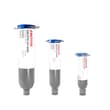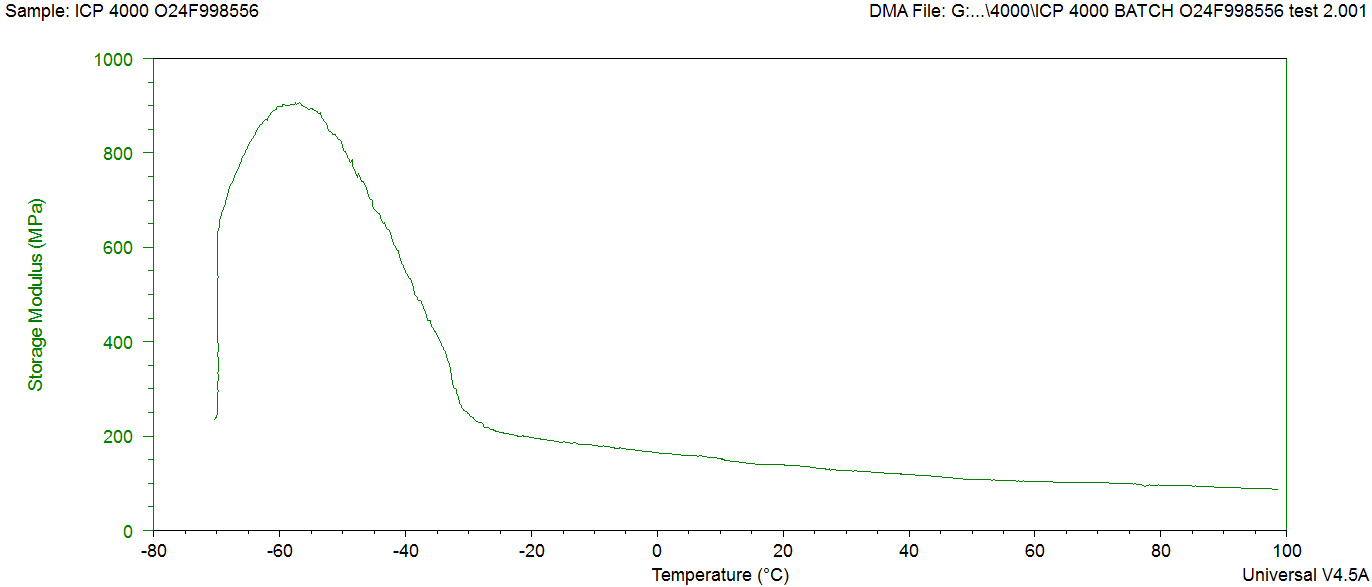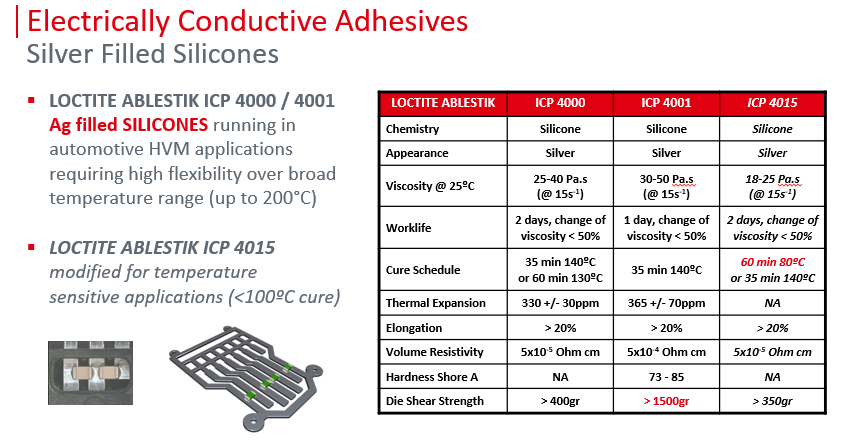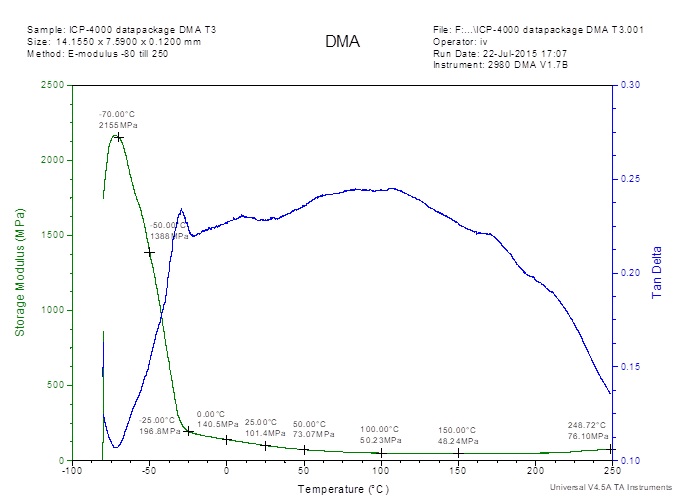LOCTITE ABLESTIK ICP 4000
- High temperature performance
- Excellent electrical conductivity
- Flexible and low stress
Product Description
LOCTITE ABLESTIK ICP 4000 is a silicone based, silver filled, flexible, electrically conductive adhesive. It is specially designed for applications where both high flexibility and excellent conductivity are required. This material is recommended for use in mounting small components to a variety of interconnect substrates. It exhibits strong adhesion under high vibration testing.
LOCTITE ABLESTIK ICP 4000 is engineered to maintain its flexibility and conductivity at elevated temperatures, up to 200ºC. It can be dispensed with commonly used time-pressure and auger valve technology and can be applied by pin-transfer. It can also be stencil printed but dispensing is the recommended method. To add to that it has excellent electrical performance, works great for noble component attach and has a high electrical current carrying capability. Compared to ICP 40001 it has better electrical performance but lower adhesion.
Cure Schedule
- 1 hour @ 130°C or
- 35 minutes @ 140°C
Technical Specifications
| General Properties | |||||
| |||||
| Physical Properties | |||||
| Viscosity Viscosity Viscosity is a measurement of a fluid’s resistance to flow. Viscosity is commonly measured in centiPoise (cP). One cP is defined as the viscosity of water and all other viscosities are derived from this base. MPa is another common unit with a 1:1 conversion to cP. A product like honey would have a much higher viscosity -around 10,000 cPs- compared to water. As a result, honey would flow much slower out of a tipped glass than water would. The viscosity of a material can be decreased with an increase in temperature in order to better suit an application | 30,000 mPa.s | ||||
| Mechanical Properties | |||||
| Elongation Elongation Elongation is the process of lengthening something. It is a percentage that measures the initial, unstressed, length compared to the length of the material right before it breaks. It is commonly referred to as Ultimate Elongation or Tensile Elongation at break. | 450 % | ||||
| Electrical Properties | |||||
| Volume Resistivity Volume Resistivity Volume resistivity, also called volume resistance, bulk resistance or bulk resistivity is a thickness dependent measurement of the resistivity of a material perpendicular to the plane of the surface. | 6.0x10-5 Ohms⋅cm | ||||
| Thermal Properties | |||||
| |||||
| Glass Transition Temperature (Tg) Glass Transition Temperature (Tg) The glass transition temperature for organic adhesives is a temperature region where the polymers change from glassy and brittle to soft and rubbery. Increasing the temperature further continues the softening process as the viscosity drops too. Temperatures between the glass transition temperature and below the decomposition point of the adhesive are the best region for bonding. The glass-transition temperature Tg of a material characterizes the range of temperatures over which this glass transition occurs. | -45 °C | ||||






